Study
Copyright@ Australian Catholic University 1998-2026 | ABN 15 050 192 660 CRICOS registered provider: 00004G | PRV12008
Copyright@ Australian Catholic University 1998-2026 | ABN 15 050 192 660 CRICOS registered provider: 00004G | PRV12008
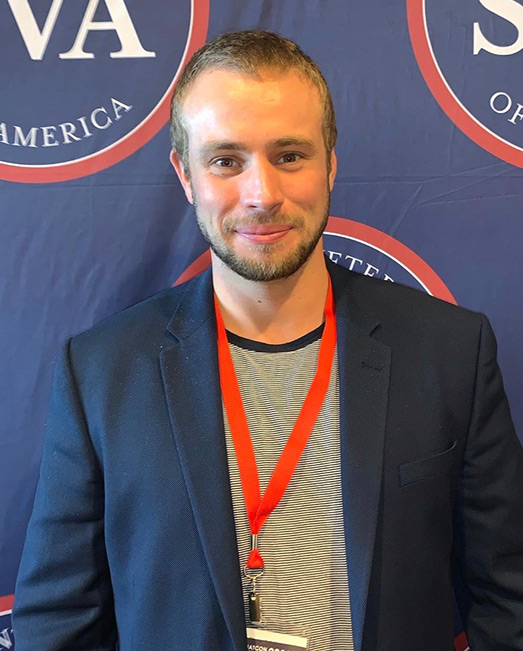
Nick Stanford spent four years in the army before switching directions. He’s now studying paramedicine at ACU after learning about the Student Veterans Support Program, which helped him transition to civilian life.
When Nick was completing high school, there was never any doubt about his next step.
“I’ve always wanted to join the army,” he said, “Always. There’s a lot of history of service in my family, including cousins and uncles, and my great-grandfather was a POW in Singapore, Thailand and Japan before he was liberated and returned home during the Second World War. So, this was always the plan for me.”
As he long suspected, Nick enjoyed his time as an infantry soldier, which included visits to Hawaii and Papua New Guinea, but said the challenges of army life were inevitable.
“Being away from home can be tough. I was always either out in the field or away training."
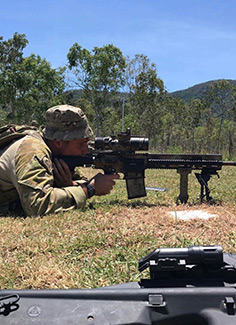
I had a few moments of hesitancy, but you push through it. I never thought ‘I don’t want to be doing this’.”
Like joining the army, switching directions to studying paramedicine was an easy decision for Nick.
“Originally I was thinking of transferring from the infantry to a combat medic role, but there was an extended wait time for it. I realised that in that same time I could complete a paramedicine degree at uni.
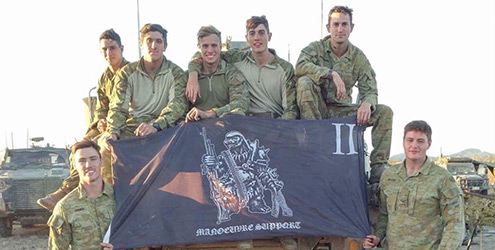
Conveniently, Nick didn’t have to look far to find inspiration for this new direction.
“My dad has been a paramedic for 33 years and I’ve learnt so much from him, so maybe I can carry on his legacy. Though unfortunately he’s retiring this year, so we won’t have a chance to work together. I’d have loved to have been out in the field with him.”
Similar to many ACU paramedicine students, Nick said his placement at an inner-city station has been the best part of the degree.
“I loved going out on the road with a real team,” he said. “My mentors were more than happy for me to ask questions. If I didn’t know something, I would be direct and just say, ‘Hey, I don’t know what I’m doing here’ and they were great about helping me out.
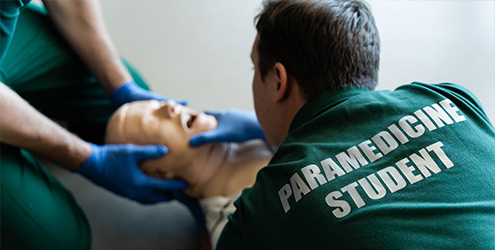
“For my next placement, I hope I can go to a rural station, which I know will be a totally different experience. I want to see how the rural teams make do with fewer resources compared to the city stations.”
Paramedicine has proven to be a natural fit for Nick, and he learnt quickly about the realities of the job.
“You hear all the time about big car crashes and huge traumas, and while we’re trained for those situations, you soon learn that most of the job isn’t like that.
“During my placement it was mostly sports-related injuries or chest pains, but that’s the real work. It’s mostly talking to people, seeing if they’re okay. And if the job is just driving someone from the GP to the hospital, it still makes you feel good.
“Mostly it’s humbling that you’re invited into someone’s home as a complete stranger and they put their trust in you.”
ACU was Nick’s first choice for his degree, thanks to good word of mouth.
“A friend from the army said the Brisbane Campus was a great place to study paramedicine. And then I learnt that the Student Veterans Support Program (SVSP) was about to launch and that your army experience could equate to a ranking to get you into uni.”
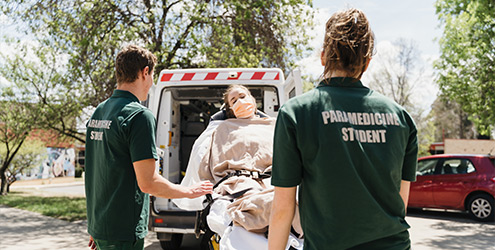
ACU’s SVSP was established to support student military veterans like Nick as they make the transition from the defence forces to university life.
“The SVSP helped me understand that I wasn’t alone, and that I had someone to talk to about the kind of stresses that can be unique to student veterans like me,” said Nick.
One of the unexpected challenges Nick had to overcome was relaxing into a more casual way of life.
“I think the biggest issue faced by student veterans is the culture shock of going from a very disciplined environment where everything is planned for you, to the civilian world where it’s more relaxed.
“So, it was a bit strange at first when no one was yelling at me and I could walk on the grass! Everything is more casual here. Now, I love sitting on the grass on campus.”
An unexpected trip to California has been another degree highlight for Nick. To lend support to student veterans, the SVSP sponsored Nick to attend the 2020 US Student Veteran Association’s National Conference (NatCon) in Los Angeles, which is the largest annual gathering of student veterans in the world.
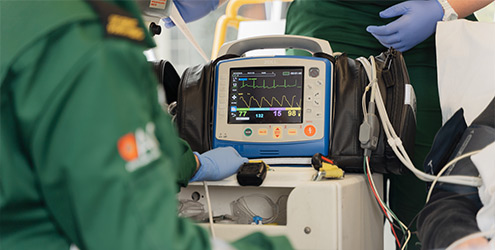
“It was great to see how other people do things. I’m hoping to help develop the student veterans program at ACU and make it a key part of the university system.
"I want others to understand that veterans aren’t there to be helped, but rather we can help ourselves – and be an integral part of our uni.”
With another year left to complete his course, Nick says being open is one of the most important skills he needs to become a successful paramedic.
“You have to be the type of person who’s open to always learning; not someone who just sits there thinking they know it all. You have to be resourceful and adaptable too, as you meet so many different types of people on the job.
“Importantly, as a paramedicine student you have to be willing to admit when you don’t know what’s going on and be willing to ask questions.
“A big thing in the army is if you don’t know, you don’t know. So, ask the question, even if it sounds stupid. Chances are other people don’t know the answer either.”
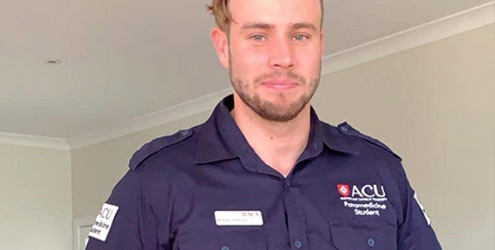 Find out more about ACU’s Student Veterans Support Program and where a degree in paramedicine could take you.
Find out more about ACU’s Student Veterans Support Program and where a degree in paramedicine could take you.
Copyright@ Australian Catholic University 1998-2026 | ABN 15 050 192 660 CRICOS registered provider: 00004G | PRV12008